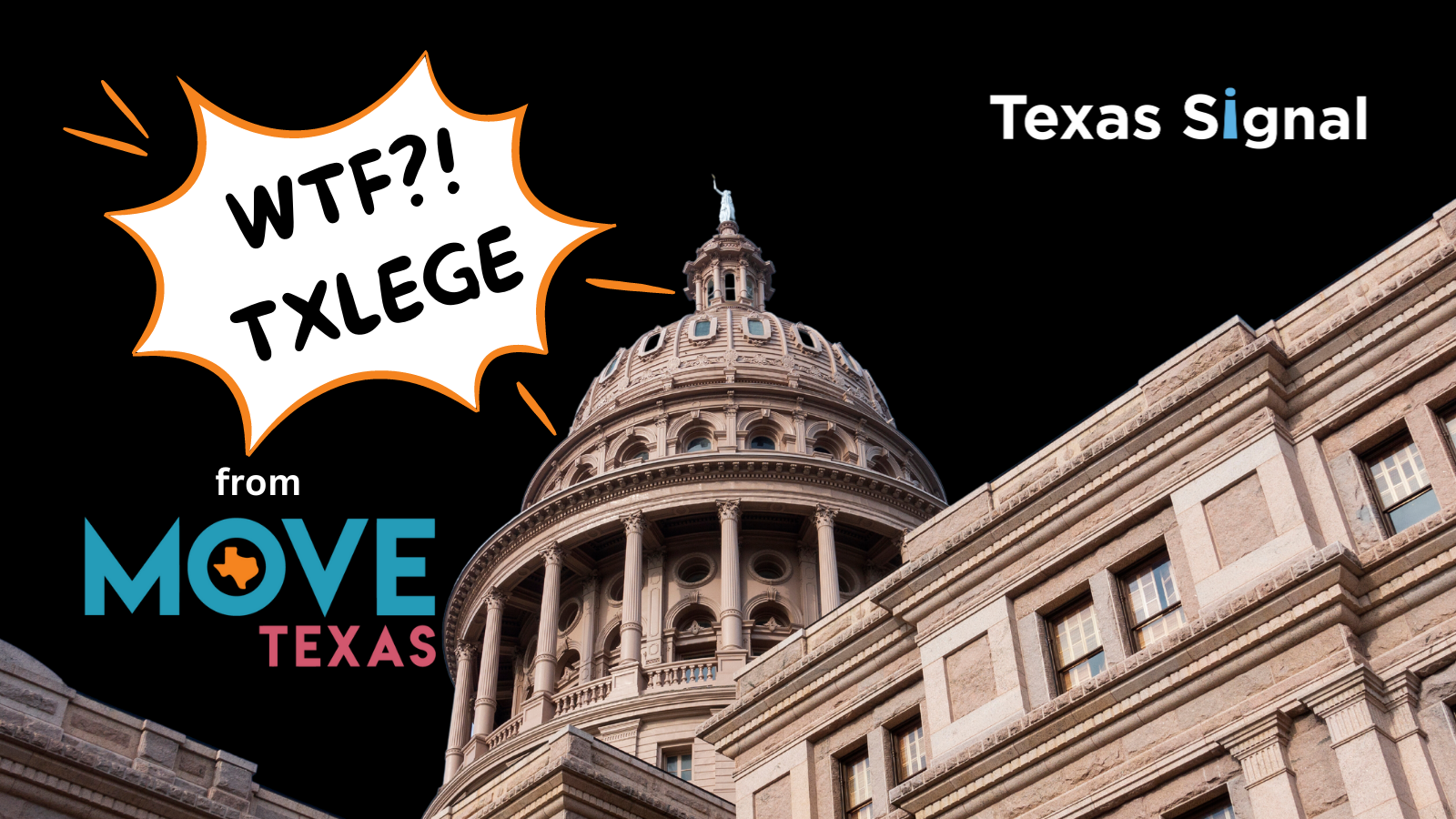Every day, young people create and set new trends that influence modern society. What music is leading the billboards, or what fashion’s in-style? What books or news sites are relevant? What ideas are acceptable to modern society? Each of these questions is often answered by young people.
The question we can’t answer, however, is part of a longer conversation that young people haven’t dictated almost ever.
Why is it so damn hard to vote?
As part of MOVE Texas’ series for young people demystifying why the legislature acts the way it does, and why clear-cut issues to us aren’t really clear-cut issues to politicians, we’re diving into the topic of voting rights.
Each year, we see politicians go door to door, counting votes and kissing babies, telling citizens how important the right to vote is. But each year, we also see hours-long lines outside polling locations, attacks on ballot access, and conservative politicians gaming the system against everyday people. Now, we even have politicians threatening to have the state take over county elections departments for whatever reason they deem necessary.
It’s undeniable that voting is hard in Texas, and the main reason for the difficulty is as pessimistic as you may think – extremist politicians need suppressed voters and low voter turnout to maintain sheer political power in the state. It’s that simple.
Recent examples shed more light onto that fact.
In 2020, many voters felt physically unsafe attending the polls in fear of becoming ill with COVID-19. Many counties understood this fear and gave voters more options to vote, such as 24-hour polling locations, ballot drop-off sites, and increased access to voting by mail. Turnout skyrocketed, and conservatives entirely blamed the policies for Donald Trump’s defeat.
Extremist politicians quickly sought to limit these options through 2021’s Senate Bill 1, which blocked increased voting access and increased penalties on voters and elections staff, as part of a nationwide push to instill mistrust in our elections. The effect was even more brutal than expected. In 2022, the legislation blocked tens of thousands of eligible voters from voting.
A similar effort happened again in 2019, when power-hungry politicians tried passing anti-voter legislation to suppress votes following their historic losses in 2018’s midterm election.
Have power, use the power. It’s a lesson these politicians learned back in 2003, when they gained total control of the Texas Legislature by winning the House. They proceeded to game a nearly unprecedented mid-decade redistricting plan, snatching seats from duly-elected officials across the state and tilting total power to themselves for years to come. They then tried cementing in their stolen gains by passing suppressive voter ID measures.
In the end, while some politicians were criminally charged in connection to their redistricting actions and voter ID was shot down multiple times by the courts for being discriminatory, the effect never really changed. These megalomaniacs strong-armed Texans into lasting power, and we are still seeing the effects to this day.
With the dark and repetitive theme of voter suppression in Texas, it’s clear that a system is needed where people can come together and hold decision-makers accountable. We need to throw out old, out-of-touch rules that disenfranchise voters, like the signature matching verification process or the unreliable paper voter registration system.
The entire system needs a revamp, with young people as the focus. There’s good reason why.
A recent Center for Information & Research on Civic Learning and Engagement study showed that youth voter turnout in the 2022 midterm elections was the second-highest in almost three decades nationwide. However, Texas was the exception, with only 25% of registered voters under age 30 voting, a lower percentage than in 2018 and 2020.
Even with a lower midterm turnout, young people in Texas are more engaged than ever before and want to see changes in policy that reflect their needs and values, especially in a state with power-hungry leaders like Texas. These politicians are well aware of the power of young people, which leaves them shaking in their boots (Texas pun intended) and passing new voter suppression laws, session after session.
For example, Texas has a strict voter ID requirement that discriminates against low-income, young voters of color, who are less likely to have one of the seven forms of state-approved photo ID. Unsurprisingly, you can vote with a handgun license, but not a student ID, which is sometimes the only identification to which young people have access. The math isn’t mathing. Texas should accept student IDs at the polls if the voter ID law must stay.
Whether it be passing automatic and online voter registration or ensuring that every college has a polling location on-site, Texas lawmakers should be helping young people build a culture of voting and civic engagement that future generations can look up to. It’s imperative that we modernize the voter registration system, expand access to the ballot for eligible voters, and remove discriminatory barriers that keep young people from the polls.
Young people deserve to have their voices heard and their votes counted. During the 88th Legislative Session, we will be testifying at committee hearings, rallying with young people on the Capitol steps, and fighting like hell to protect and expand voting rights. We’re in this for the long haul – For lifers.
Amber Mills is the MOVE Texas Advocacy Organizer




